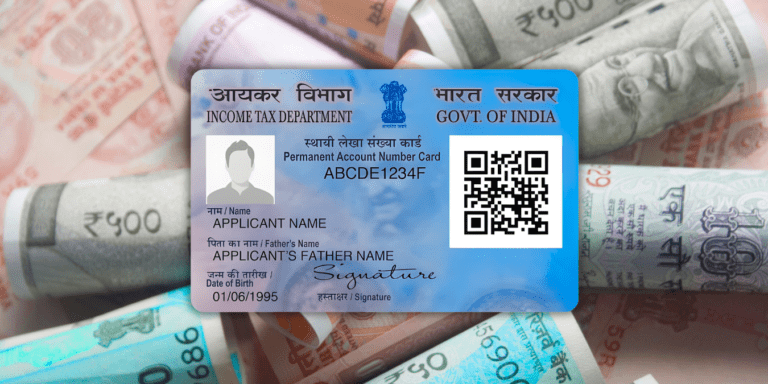
” Wondering how much cash you can keep in your savings account without triggering an income tax notice? Learn the rules, limits, and best practices to stay compliant. Avoid tax scrutiny and maximize your savings with this comprehensive guide. Stay informed and secure your financial future today! “
In today’s financial landscape, understanding the regulations surrounding cash deposits in savings accounts is crucial. With the Income Tax Department closely monitoring high-value transactions, it’s essential to be aware of the limits and rules to avoid triggering an income tax notice. This comprehensive guide will provide you with the latest data and insights on how much cash you can keep in your savings account without attracting scrutiny from tax authorities.
Savings accounts are a fundamental part of personal finance, offering a secure place to store money while earning interest. However, with increasing regulatory oversight, it’s important to understand the cash deposit limits and the implications of exceeding them. This blog post will delve into the specifics of cash deposit limits, reporting requirements, and strategies to manage your savings account effectively.
Understanding the Basics: What is a Savings Account?
A savings account is a deposit account held at a bank or other financial institution that provides a modest interest rate. It is designed to hold funds that are not intended for daily expenses, offering a safe place to store money while earning interest over time. However, the flexibility and accessibility of savings accounts also make them subject to various regulations, including those related to income tax.
The Importance of Monitoring Your Savings Account
While savings accounts are a convenient way to store money, they are not immune to scrutiny. Tax authorities, such as the Internal Revenue Service (IRS) in the United States or the Income Tax Department in India, monitor large transactions and account balances to prevent tax evasion and money laundering. Therefore, it’s essential to understand the rules governing how much cash you can keep in your savings account without attracting unwanted attention.
Understanding Cash Deposit Limits
The Income Tax Act in India sets specific thresholds for cash deposits in savings accounts. Exceeding these limits can lead to scrutiny and potential penalties. Here are the key points to consider:
- Annual Cash Deposit Limit: As per the Income Tax Act, the total cash deposits in a savings account should not exceed ₹10 lakh in a financial year (April 1 to March 31). If the total cash deposits exceed this threshold, the bank is required to report the transaction to the Income Tax Department under the Annual Information Return (AIR).
- Daily Cash Transaction Limit: Section 269ST of the Income Tax Act prohibits receiving ₹2 lakh or more in cash in a single day from a person in a single transaction or in respect of transactions relating to one event or occasion. This rule is designed to curb large cash transactions and ensure transparency.
- Reporting Requirements: Banks must report high-value transactions to the Income Tax Department. This includes cash deposits exceeding ₹10 lakh in a financial year and daily transactions of ₹2 lakh or more. Additionally, deposits above ₹50,000 in a single day require the depositor to provide their PAN.
Implications of Exceeding Cash Deposit Limits
Exceeding the prescribed cash deposit limits can attract scrutiny from the Income Tax Department. Here are the potential consequences:
- Income Tax Notice: If your cash deposits exceed ₹10 lakh in a financial year, you may receive a notice from the Income Tax Department asking for the source of funds. It’s important to have proper documentation to justify the deposits, such as bank statements, investment records, and inheritance documents.
- Tax Liability: Unexplained cash deposits may be treated as taxable income under Section 115BBE, attracting a tax rate of 60% along with surcharge and cess. This can significantly increase your tax liability if you cannot provide a legitimate source for the funds.
- Penalties: Receiving more than ₹2 lakh in cash from a person in a single day can result in penalties under Section 269ST. It’s crucial to adhere to these limits to avoid financial penalties and legal complications.
Strategies to Manage Your Savings Account
To avoid triggering an income tax notice and ensure compliance with the regulations, consider the following strategies:
- Maintain Proper Documentation: Keep detailed records of all cash deposits and withdrawals. This includes bank statements, receipts, and any other relevant documents that can substantiate the source of funds.
- Use Digital Transactions: Opt for digital transactions such as NEFT, RTGS, IMPS, and UPI for large transfers. These transactions are not subject to the same scrutiny as cash deposits and can help you stay within the prescribed limits.
- Split Large Deposits: If you need to deposit a large sum of money, consider splitting it into smaller amounts and depositing them over a period of time. This can help you stay within the annual limit and avoid triggering an income tax notice.
- Consult a Tax Advisor: If you are unsure about the regulations or need assistance with managing your savings account, consult a knowledgeable tax advisor. They can provide guidance on compliance and help you navigate the complexities of the Income Tax Act.
The Role of Technology in Monitoring Savings Accounts
Advancements in technology have made it easier for tax authorities to monitor savings accounts and detect suspicious activity. Banks now use sophisticated algorithms and artificial intelligence (AI) to analyze transaction patterns and identify potential red flags. This increased scrutiny means that account holders must be more vigilant than ever in managing their savings accounts.
AI and Machine Learning
AI and machine learning algorithms can analyze vast amounts of transaction data to identify patterns that may indicate tax evasion or money laundering. These technologies enable tax authorities to detect suspicious activity more quickly and accurately than ever before.
Blockchain Technology
Blockchain technology is also being explored as a tool for monitoring financial transactions. By creating a transparent and immutable ledger of all transactions, blockchain can help tax authorities track the flow of funds and identify potential tax evasion.
The rise of digital banking has made it easier for account holders to monitor their savings accounts in real-time. Mobile banking apps and online platforms provide instant access to account balances and transaction history, allowing account holders to stay on top of their finances and avoid potential issues.
Common Misconceptions About Savings Accounts and Income Tax
There are several common misconceptions about savings accounts and income tax that can lead to confusion and non-compliance. Here are a few myths debunked:
Myth 1: There is a Fixed Limit on How Much Cash You Can Keep in Your Savings Account
While there are reporting thresholds for large transactions, there is no fixed limit on how much cash you can keep in your savings account. However, maintaining a high balance without a clear source of income may attract scrutiny.
Myth 2: Only Large Transactions Are Monitored
While large transactions are more likely to be reported, tax authorities also monitor patterns of smaller transactions that may indicate structuring or other suspicious activity.
Myth 3: Offshore Accounts Are Safe from Scrutiny
Offshore accounts are subject to the same reporting requirements as domestic accounts. In fact, many countries have signed agreements to share financial information, making it easier for tax authorities to monitor offshore accounts.
Staying Compliant While Maximizing Your Savings
Understanding how much cash you can keep in your savings account without triggering an income tax notice is essential for staying compliant with tax laws. By following best practices, maintaining accurate records, and consulting a tax professional when necessary, you can manage your savings account effectively and avoid unwanted scrutiny.
Remember, the key to avoiding tax issues is transparency and compliance. Keep your financial records in order, report all income accurately, and be mindful of the reporting thresholds in your jurisdiction. By doing so, you can enjoy the benefits of a healthy savings account without the stress of a tax notice.
-
Spirit Airlines Bankruptcy and Flight Cancellations — The Real Reason!
Spirit Airlines just canceled hundreds of flights across 15+ US airports — and the list keeps growing. Fort
-
Gold and silver rates today: Latest Rates in all Major Cities February 20, 2026
Gold prices exploding ₹15,649/g? Silver crashes 23%—now rebounding at ₹270/g! Uncover shocking volatility secrets, city tables (Delhi to
-
Indian Stock Market Trends: Sensex & Nifty Plunge on Geopolitical Tensions
Sensex crashes 1,200 pts! Nifty bleeds—oil shock or buy signal? 7.4% GDP hides secret rebound clues. ONGC surges
































